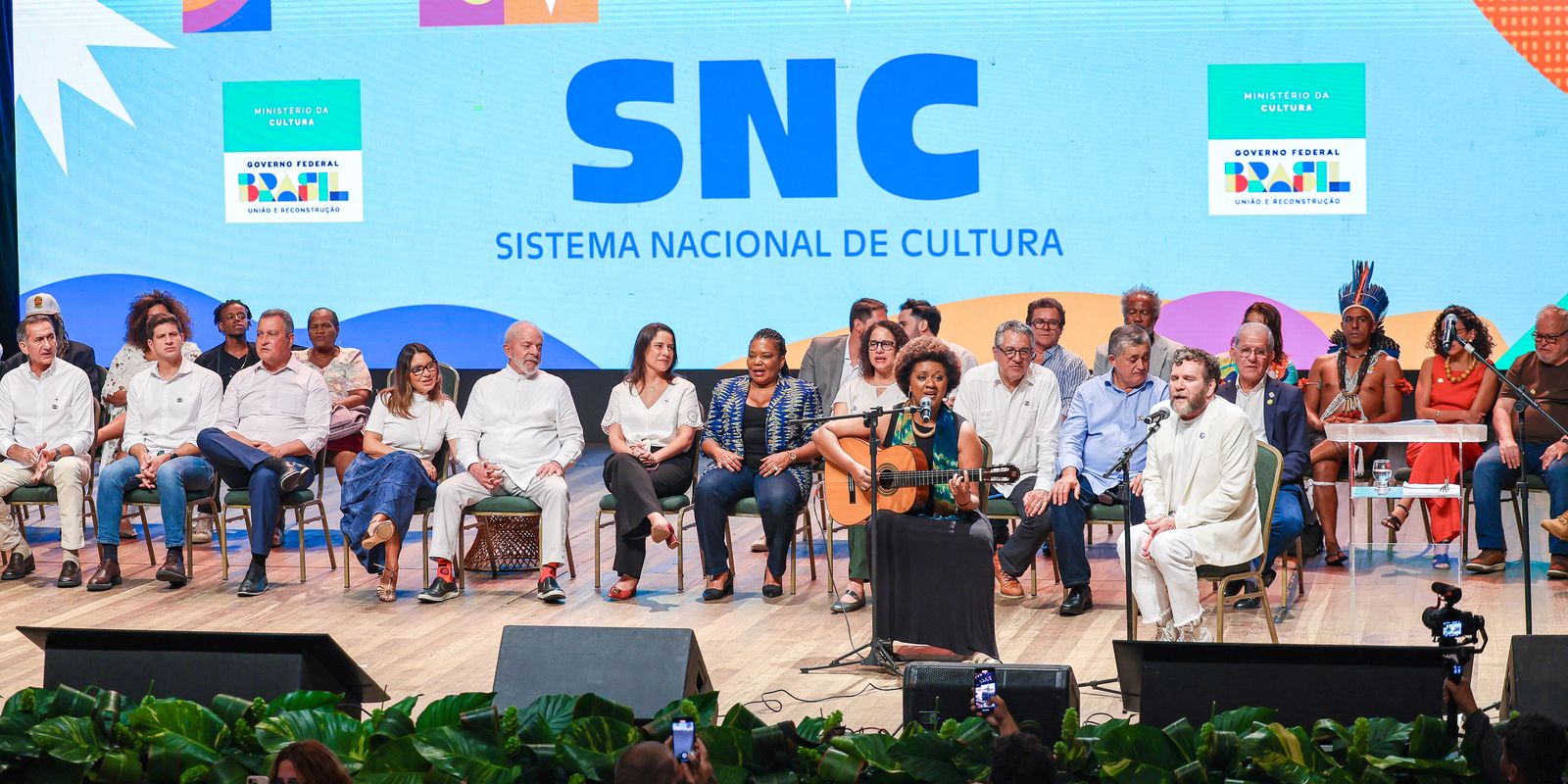On a trip to Recife, President Luiz Inacio Lula da Silva participated in a ceremony marking the approval of the draft law defining the regulatory framework of the National Cultural System (SNC), on Thursday night (4). The event filled the Luiz Mendonça Theater in the capital, Pernambuco, and was attended by Culture Minister Marguerite Menezes, authorities, artists and cultural directors.
The Syrian National Council, enshrined in the Federal Constitution, is defined by the principles of diversity of cultural expressions, universal access to cultural goods and services and the promotion of the production, dissemination and circulation of knowledge and cultural goods. The management structure of the system is divided collaboratively between the various entities of the Federation (Union, States and Municipalities), through governing bodies, councils, conferences, committees and cultural plans, among other instruments of public policy and social participation.
“What would the world be like if it weren't for culture, if it weren't for art, music, dance, painting? If it weren't for you? That person who wakes up every morning trying to do something to arouse interest in someone else,” Lula said to an audience full of artists and culture makers.
In his speech, the President stressed the role of the National Congress in approving the measure, which “despite being a conservative majority, has the qualifications to understand that culture is part of the soul of the nation.”
“This system, like the unified health system, the unified social assistance system, and the unified public security system, provides the necessary conditions for the construction of a cultural policy in Brazil, in which the Union, the states and the municipalities have very specific and clear roles. All of them are satisfactory” procedure for financing this system, but to each their own Its own responsibilities in implementing public policy,” explained Senator Humberto Costa (PT-PE), rapporteur of the project in the Senate. PL 5,206/2023, as it was called during processing, was approved by the National Congress last month.
Minister Marguerite Menezes noted that the SNC had been a desire in the cultural sector since at least 2005, and now consolidates the permanent presence of the Ministry of Culture, a ministry abolished by the previous government.
“The arrival of our national cultural system will affect the existence of the Ministry of Culture in Brazil,” he said. She announced the opening of a ministry office in all states and compared the national cultural system to the SUS system.
“We will have representation of MinC in all states of Brazil. We will have cultural agents to reach those places where cultural activities have never reached. It will be like an agent [de saúde] From SUS”.
Margaret Menezes also highlighted the role of the Alder Blanc and Paulo Gustavo Law, which together provide cultural promotion worth approximately R$ 7 billion over the next few years, to finance cultural activities and guarantee transfers to states and municipalities for the implementation of public policy in ADVICE.
The Minister of Culture, a singer and songwriter from Bahia, moved during her speech at the SNC approval ceremony and defended the sector as important in the development of the country's economy.
“We are over 5 million people working in creative economy industries. The cultural sector is responsible for 3.11% of GDP [PIB] Brazil. This persecution and suspicion about why we invest in culture, that's the answer. “We participate in the development of the economy, and we give returns to the Brazilian economy.” Also according to Margarita, the Ministry commissioned a survey to evaluate the return of cultural policies in generating employment and income.

“Hardcore beer fanatic. Falls down a lot. Professional coffee fan. Music ninja.”








More Stories
Students can apply for a FAPDF Science Award
Discovering the deepest sea hole in the world in Mexico | The world and science
The Udesc Postgraduate Course in Human Movement Sciences is accepting applications